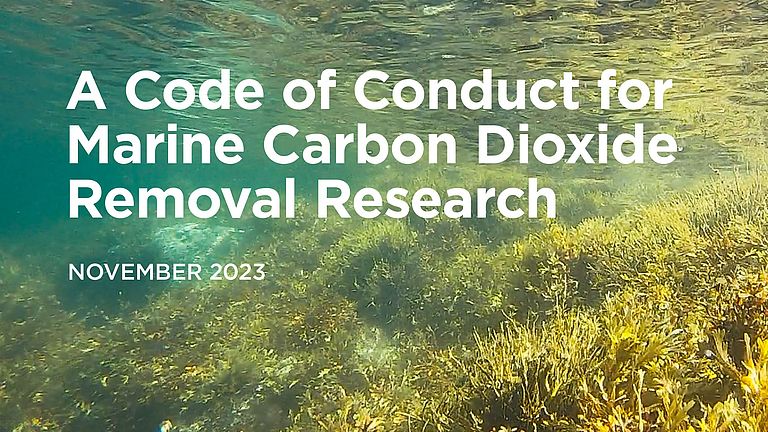For safe and sustainable research on marine carbon dioxide removal
Code of Conduct launched by team of scientists involving Dr. David Keller from GEOMAR
To limit global warming as laid down by countries in the Paris Agreement, it becomes increasingly clear that carbon dioxide needs to be removed from the atmosphere in addition to rapid and drastic reductions in greenhouse gas emissions. Researchers are currently investigating a variety of approaches, including many using the ocean’s natural capacity to take up and store carbon dioxide. This includes for example macroalgae cultivation, restoration of coastal blue carbon ecosystems, nutrient or iron fertilization, alkalinity enhancement, and artificial upwelling or downwelling. The potential of marine carbon dioxide removal (mCDR) to contribute to net zero pathways has led to considerable investments in mCDR research. However, this new research field itself needs to be coordinated to avoid potential risks – before respective measures can be taken on a larger scale.
An international team of researchers led by the Aspen Energy and Environment Program therefore developed a Code of Conduct to ensure mCDR research activities are ethically conducted as they progress. Among the ten authors is Dr. David Keller, senior scientist in the Marine Biogeochemical Modelling Research Unit at GEOMAR Helmholtz Centre for Ocean Research in Kiel, Germany, and coordinator of the Ocean-based Negative Emission Technologies (OceanNETS) project funded by the European Union.
The Code of Conduct provides a roadmap of processes, procedures and activities that leaders of mCDR projects are recommended to follow to ensure that decisions regarding whether, when, where and how to conduct mCDR research are informed by relevant ethical, scientific, economic, environmental and regulatory considerations.
“The science is clear that to mitigate climate change, we need carbon dioxide removal (CDR) in addition to emissions reductions, which still have to be the number one priority. The ocean may be a place where CDR could be done at a scale of gigatonnes, but there are also risks from CDR activities”, says Dr. David Keller. “As research and commercialisation of ocean-based CDR progresses, we must make sure that it is done in a safe, sustainable manner that takes into account not only what is technically possible, but also ethically desirable. Our new code of conduct provides this guidance and should be on the reading list for anyone working on ocean-based CDR.”
A Code of Conduct for Marine Carbon Dioxide Removal Research

Cover "A Code of Conduct for Marine Carbon Dioxide Removal Research (Detail)


